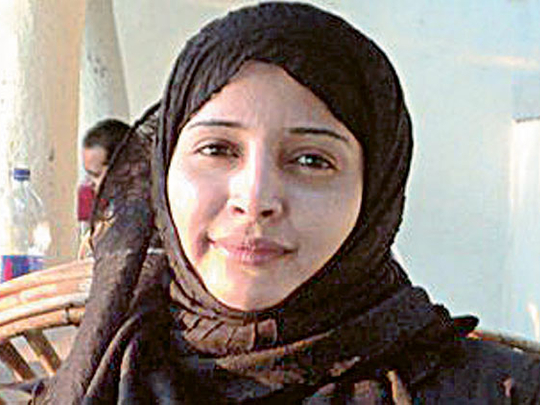
In a candid interview with Gulf News, Yemeni activist Bushra Al Mugtari from the city of Taez says she is proud to be a part of the people's movement in Yemen. She said that, while there are many challenges ahead, the era of cronyism and dictatorship is over. Excerpts from the interview:
What are the standout images of the uprising in Taez?
On May 29, government forces stormed a public square and burnt many handicapped protesters to death. Security forces used all kinds of weapons to remove us from the square. I vividly remember protesters chanting Takbeer [Allah is great] along with the national anthem. The security forces targeted medics and ambulances, but we did not give up. On June 3, we managed to regain the square and camp again in the same place that was burnt down. As we were regrouping, the regime's forces stationed in the neighbouring schools and health facilities began shelling the square almost daily.
The second memorable date was November 11 when troops bombarded the city for two days in order to prevent us from gathering for Friday's mass prayer. The youth defied the shelling and turned out in huge numbers. One afternoon, a shell killed three women while praying. I am still traumatised by this incident.
Taez bore the brunt of crackdown. Why is that?
Taez has always had to pay a price during Yemen's contemporary history. The city has been a cultural and political hub for intellectuals struggling to build a modern and civilised state. When the people took to the street on February 11 to seek the overthrow of the regime, the regime responded with a violent crackdown and tried to isolate the protests from the other cities thinking that, if it managed to curb protests in Taiz, it would be able to contain anti-regime protests across the country.
To achieve that goal, the regime appointed repressive security officials in the city to handle the ballooning protests.
What do you remember about the first days of the uprising. How did you manage to rally protesters?
The emergence of the revolution was spontaneous. When the regime of Egypt collapsed, youth protesters in the city went out to express solidarity with the Egyptians and then they decided to stay put. When I look back on those days, I feel that I was a part of history. In the first days of the revolution, we were only hundreds of young people who were determined to sleep in front of the governorate's headquarters. The government's armed vehicles and thugs attacked and arrested us soon afterwards. I admire the sense of love, cameraderie and enthusiasm that we shared during protests.
What does the future hold for your country? Do you think that the regime's demise will solve all problems?
In my opinion, the future will not be as gloomy as [it might be by] maintaining the status quo. We may face many challenges in future which are part of the regime's legacy.
The troubles in the south of the country is among these challenges. The people in the south have the right to self-determination.
We will inherit an economically-collapsed state, nationwide instability, a violence-oriented culture, and proliferation of weapons. However, despite these challenges, we will work on building a civilian state based on the principles of democracy, personal freedom and social justice, dignity, equal citizenship and fair distribution of jobs and wealth.












